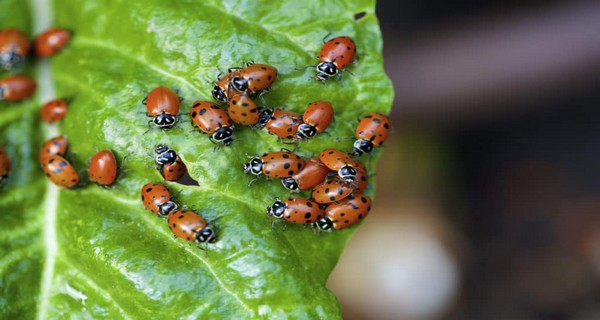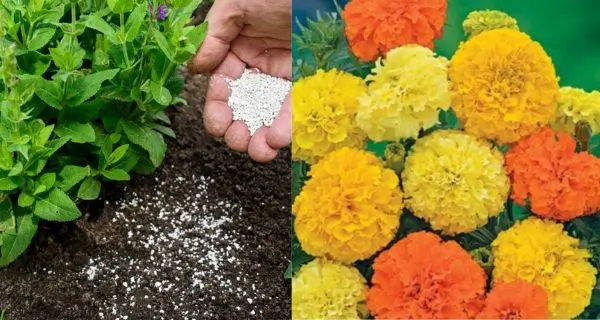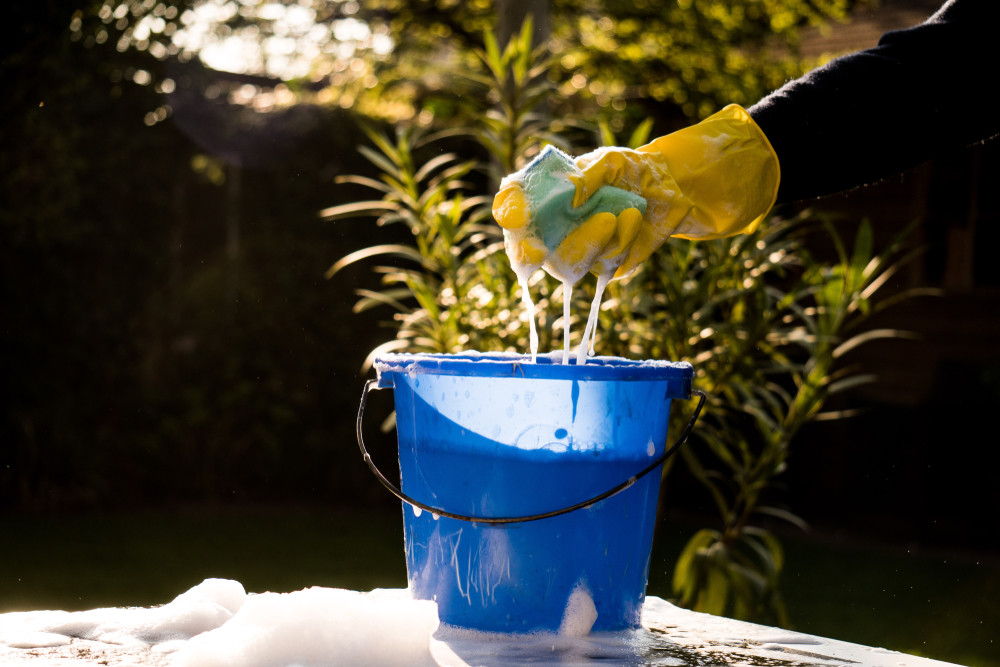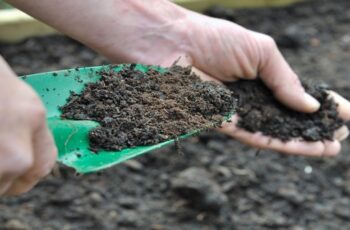Ad Blocker Detected
Our website is made possible by displaying online advertisements to our visitors. Please consider supporting us by disabling your ad blocker.
-
Enhance soil moisture retention with mulch
Mulching is an effective way to conserve soil moisture and suppress weed growth. Organic materials such as straw, shredded leaves, grass clippings, or wood chips can be used as mulch around your plants. Mulching also helps regulate soil temperature and prevents soil erosion.
-
Introduce beneficial insects

Encourage a healthy balance in your garden ecosystem by attracting beneficial insects that prey on pests. Ladybugs, lacewings, and praying mantises are natural predators of aphids and other garden pests. You can attract these helpful insects by planting flowers like daisies, fennel, and yarrow, which provide nectar and pollen for them.
-
Utilize companion planting

Companion planting involves strategically growing certain plants together to enhance their growth and deter pests. For example, planting marigolds alongside tomatoes can help repel nematodes, while planting basil near tomatoes can improve their flavor and repel pests like flies and mosquitoes. Do some research to discover beneficial plant combinations for your specific garden.
-
Employ natural slug and snail barriers
Slugs and snails can be troublesome garden pests, but you can create barriers to keep them at bay. Place copper strips around raised beds or pots, as slugs and snails dislike crossing copper. You can also use crushed eggshells, diatomaceous earth, or a ring of coarse sand around susceptible plants to create abrasive surfaces that deter these slimy pests.
-
Use stale beer as a slug trap
Slugs are attracted to the scent of beer, making it an effective trap. Bury a small container, such as a shallow dish, in the ground and fill it with stale beer. Slugs will be lured into the container and drown. Remember to empty and refill the traps regularly for continued effectiveness.
-
Prune with caution and at the right time
Pruning is essential for maintaining plant health and shape, but it’s crucial to prune properly and at the appropriate time. Learn about the specific pruning requirements of your plants, as improper pruning can weaken or damage them. Make clean cuts at an angle just above a bud or branch junction to promote healthy regrowth.
For bug control:
17. Medicate Your Plants with Aspirin
Did you know that aspirin can do more than just relieve a headache? It can also benefit your plants! Adding a dose or two of aspirin to your plants can enhance their disease resistance. The salicylic acid in aspirin primes the plants to fight bacterial infections and insect infestations, similar to the effect of commercial products like Messenger. To utilize this method, dissolve one or two aspirin pills in a gallon of water and spray the solution on your plants every 2-3 weeks. Be cautious not to overdose, as too much aspirin can harm your plants.
18. Get Rid of Aphids with Soap and Water

Aphids, those pesky sap suckers, can quickly colonize your plants with the help of ants. To combat mild aphid infestations, a simple solution of soap and water can do the trick. The dish soap’s oil-cutting formula removes the waxy coating on aphids, leaving their soft bodies susceptible to dehydration. Mix two tablespoons of high-suds dish soap in a gallon of water and thoroughly spray the infested plant, ensuring coverage under the leaves as well.

